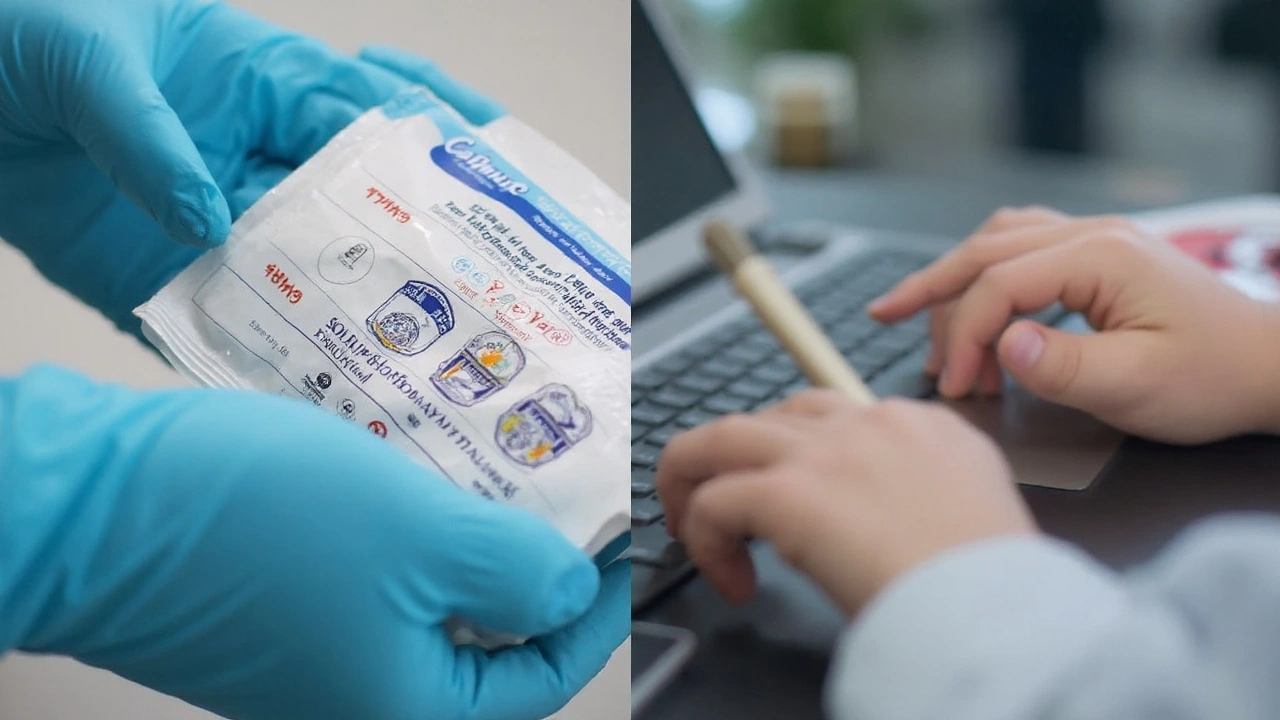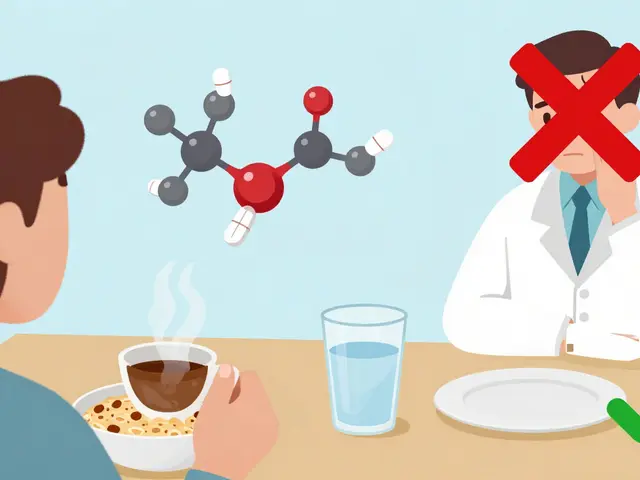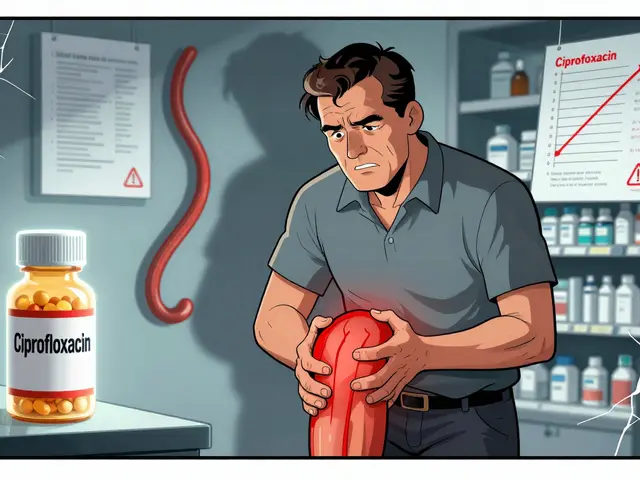Sodium bicarbonate sits quietly on shelves, but there’s nothing boring about its uses. This white powder is the same stuff found in baking soda, but online shoppers hunt for it far beyond the kitchen. People snap up sodium bicarbonate for everything from calming acid reflux to cleaning coffee pots. But buying it online is trickier than you think. You can’t simply toss the cheapest bag into your virtual cart and call it a day. Fakes, shady sellers, and wild price swings make it a minefield. Skip a proper check and you might end up with mystery powder or hidden fees. But if you know where to look and how to judge quality, getting reliable sodium bicarbonate online isn’t hard—you just need a clear plan.
Why People Buy Sodium Bicarbonate Online
You’d be surprised how popular sodium bicarbonate has gotten online. It’s not just the home bakers driving demand. Folks dealing with heartburn love it because it soothes stomach acid in a pinch. Athletes, especially runners and swimmers, use it to buffer lactic acid during hard workouts. Some hospitals even use food-grade sodium bicarbonate for certain medical emergencies. And if you’ve dabbled in homemade cleaners or tried those viral TikTok hacks, you probably know the stuff works on just about any grime, stink, or stain.
Still, buying sodium bicarbonate at the corner grocery isn’t always practical. You might need a bigger amount, a purer grade, or, hey, you live somewhere it’s just weirdly expensive. This is where online shopping shines. Sites like Amazon, Walmart, and niche health shops stock everything from single-pound boxes to 50-pound sacks. You also find options labeled “pharmaceutical grade” or “food grade,” with details on their source, purity, and any certifications.
What’s the difference? Food-grade and pharmaceutical-grade sodium bicarbonate are both pure enough to eat, but pharma-grade batches are tested to stricter standards. If you’re using it in food recipes or for minor tummy issues, the food-grade is fine. If you’re prepping DIY toothpaste or you really want zero impurities, pharma-grade is the way to go. Watch out though: some sellers use these labels loosely. Checking for independent lab tests, called certificates of analysis, is key if purity really matters to you.
The demand for sodium bicarbonate has shot up in recent years. In 2023 alone, online global sales of personal and household chemical ingredients—including baking soda—jumped over 15% compared to the previous year (Statista). And the trend is still climbing, since people are looking for cheaper, multipurpose products that handle more than one household headache at a time.
If you’re new to this game, you’ll bump into some odd sellers out there. Some online shops look legit but ship slow or hide shipping costs until you’re halfway through checkout. Others work out of drop-shipping networks—basically, they don’t actually keep the product in stock, so quality can be inconsistent. That's why knowing what to look for, whose reviews to trust, and how to decode product listings really pays off.
How to Spot a Quality Seller (and Avoid Getting Burned)
The golden rule for buying sodium bicarbonate online: stick with sellers who show their cards. Real quality shops literally list everything. That means the product origin, purity percentage, whether it’s food or pharma grade, batch expiry date, and a certificate of analysis if you ask for it. If you can’t find any of this, your alarm bells should ring.
You want to dig into reviews—but treat them with suspicion. Reviews posted on big retail websites can be helpful, but watch for red flags. When every comment sounds similar, or profiles look fake, that’s a clue there’s some review manipulation. Instead, scan forums like Reddit’s chemistry or fitness boards, or spot sharp comments on Quora. When people discuss specific brands or suppliers, that’s often more honest and detailed.
Another trick: use the shop’s customer service. Shoot them a message before you order. Ask about processing times, return policy, or batch certificates. Their answers will tell you everything about their reliability. A real shop answers fast, with precise, confident info. A shady shop is slow, gives canned replies, or sidesteps your question.
Pay attention to packaging and shipping. Good sellers know proper packaging prevents contamination and moisture. Look for sodium bicarbonate that comes in resealable, food-safe bags or tubs. Avoid listings that don’t show the package, use stock images, or display spelling errors in product descriptions. These details reveal how much the seller cares about quality control. For bulk options over 5 pounds, check for double-bag packaging, so you’re not met with a powdery mess at your doorstep. For all sodium bicarbonate, even the cheapest, it should be white and clump-free when it arrives.
Pricing isn’t always straight math. Some sellers mark up sodium bicarbonate based on brand name, even if the powder inside is identical to the budget stuff. Scan for deals on larger packages, but don’t fall for per-pound prices that sound way cheaper than the competition—they could be cutting corners or swapping cheaper, lower-grade material. Here’s a quick comparison below to help guide your purchase:
| Seller Type | Package Size | Typical Price (USD) | Shipping Speed | Grade Offered |
|---|---|---|---|---|
| Amazon Vendor | 1 lb – 20 lbs | $6 – $30 | 1-5 days | Food, Pharma |
| Health Supplement Store | 8 oz – 5 lbs | $5 – $18 | 2-7 days | Food |
| Bulk Chemical Supplier | 10 lbs – 50 lbs | $12 – $60 | 3-8 days | Food, Pharma, Tech |
You want a fair price, but also peace of mind. If a 5-pound bag is selling for $4 while everyone else is at $15, ask yourself how they’re shaving costs, and what corners they might be cutting.
Don’t forget legalities. In the United States, sodium bicarbonate is not a restricted substance—there are zero regulations for buying or owning it in normal amounts. The only time you might run into trouble is importing huge quantities across borders, which could be flagged for additional inspections. In the UK, EU, Australia, and most of Asia, it’s just as open. Still, always check your local rules if you’re ordering from overseas. A quick call or email to customs can save you from annoying delivery surprises.

Step-by-Step: How to Buy Sodium Bicarbonate Online
Let’s not overthink it—buying sodium bicarbonate online is easy, but it pays to be smart about it. Here’s a foolproof approach for a stress-free order:
- Decide on the right grade: Do you want food-grade or pharmaceutical-grade? (For anything edible, food-grade is minimum.)
- Choose your amount: Only need a pound? Most kitchen brands work fine. If you’re cleaning the house, go bulk. Just trying out an athletic hack? A small tub lasts ages.
- Scout for sellers with real reviews: Look for stores with clear images, detailed info, and layered reviews on trusted platforms—think Amazon, iHerb, or dedicated supplement shops.
- Study the price per ounce or pound: Don’t get tricked by big numbers. Divide the total price by the weight for a real comparison.
- Check shipping times and return policy: If you need it this week or want a backup plan in case something’s off, read the fine print.
- Message customer service: Ask about the batch certificate, packaging, and expiry dates. If you’re ignored or brushed off, move on.
- Order and track: Use a payment method with buyer protection (like PayPal or a credit card), and follow your shipment as it’s processed.
- Inspect when received: When the package arrives, look for the right color, texture, and packaging details. It should be a white, fine, non-clumpy powder without odd smells.
- Store safely: Keep it in a cool, dry place, tightly sealed. Sodium bicarbonate pulls moisture fast, and a soggy bag is a ruined bag.
If you get any odd results (strange taste, musty odor, or discolored powder), send it back. Stores that stand behind their products will sort the issue quickly.
Most people buying sodium bicarbonate online pick Amazon or Walmart because they trust the customer service and fast shipping. But if you want exotic brands, bulk deals, or higher purity for home science use, try places like BulkSupplements, PureBulk, or even scientific supply shops. Always check if they cater to private buyers—some only sell to businesses or need extra paperwork.
Here’s a neat fact: A study by the Journal of Food Science found that food-grade sodium bicarbonate stored in airproof containers keeps its strength for years—even up to a decade if kept cool and dry. So buying in bulk won’t leave you with clumps or waste if you store it right.
Want to hear a pro tip? For the best deal, time your purchase during online sales in January (post-holiday cleaning craze) or summer (when people prep for backyard barbecues and freshen pools). The price difference can be as much as 20% lower versus the holiday rush.
Keeping an eye on delivery dates is another smart move. Sodium bicarbonate is shelf-stable, but you don't want to risk a late arrival if you need it for a specific recipe or event. Using a tracked shipping option is worth the extra dollar—otherwise, it's like waiting for a letter from an old friend and never knowing if it'll show up.
Hidden Uses, Clever Storage, and Safety Tips
Beyond baking, sodium bicarbonate pulls its weight in all kinds of living-room science and household hacks. You already know about using it for cleaning, but here are a few surprisingly handy ideas from real-life folks:
- Freshen shoes by slipping a spoonful in a thin sock and letting it sit overnight.
- Polish silver jewelry—make a paste using three parts powder to one part water, rub it in, then rinse.
- Add a pinch to laundry loads to boost detergent power, making colors look brighter and whites whiter.
- If you’re living with pets, a thin sprinkle in litter boxes keeps odors down for days longer.
- DIY spa hack: Stir a cup into your bath to soothe sunburn and itchy skin.
- Athletes use it as a pre-race “buffer” to delay muscle burning (but this isn’t for everyone; talk to your doc first!).
- Hunters and fishermen sometimes stash a bag in their packs to neutralize scents and keep gear fresh on long trips.
But like any multipurpose marvel, sodium bicarbonate isn’t a magic ticket for every problem. Never use industrial or swimming pool sodium bicarbonate as a food or supplement substitute. Grades matter, so check the label if you’re cooking or using it in DIY cosmetics.
Store it right, and your purchase will last ages without losing kick. Seal it up, keep it dry, and avoid scooping with wet hands or spoons—sodium bicarbonate is a champion moisture magnet. A glass jar with a tight-fitting lid works best for kitchen use, while heavy-duty plastic or mylar bags are perfect for bigger batches in the garage or laundry room.
If you’re taking it for health reasons, know that overuse can mess with your body’s balance. “Too much sodium bicarbonate can trigger metabolic alkalosis, so moderation is crucial—especially for those with kidney or heart conditions,” warns Dr. Samantha Evans, a clinical nutritionist at Mount Sinai Hospital.
"Our research consistently shows that sodium bicarbonate, when sourced and used appropriately, is both safe and versatile for most people. The issues come when folks buy from unverified sources or use it in repeated mega-doses without medical advice." — Dr. Samantha Evans, Mount Sinai Hospital
And while stories about sodium bicarbonate cleaning everything from coffee mugs to patio stones aren’t urban legends, make sure to rinse surfaces fully—especially any cookware or places kids or pets might touch. Some folks with sensitive skin can notice mild irritation if exposed heavily, so gloves never hurt.
Take your time making an online purchase. Stock up, get creative, and keep it on hand for the endless chores and clever tricks life throws your way. And remember—when in doubt, go for food-grade, start with small amounts, and see how well it fits into your daily routine.



tierra hopkins on 16 August 2025, AT 12:12 PM
When I order baking-soda sized stuff in bulk I always check the certificate of analysis first and then double-check the seller's shipping policy.
Pay attention to packaging photos and look for resealable, food-safe bags. A lot of sellers skimp there and you end up with a damp, useless bag.
Also keep an eye on the per-pound math, not the headline price, and use a payment method that offers buyer protection so you aren't stuck if the description lies.